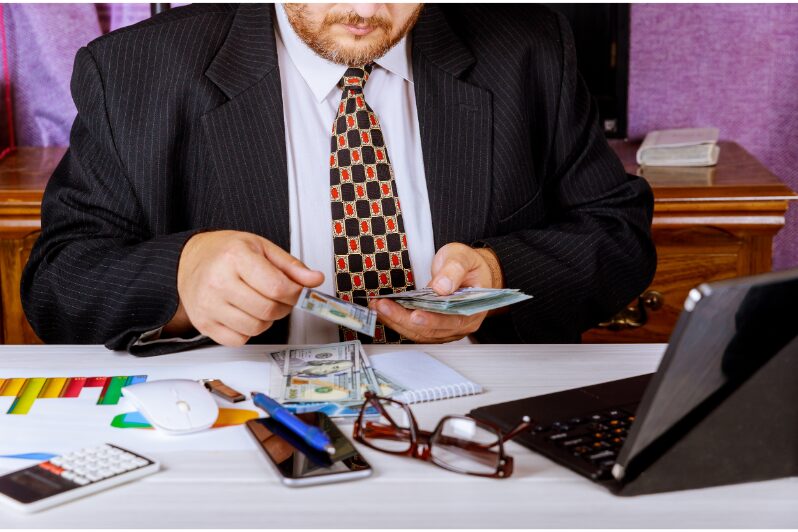When there is a dispute over matters like as the value of a debtor’s company, real estate, or other assets, the debtor’s financial predictions, and their viability, an expert witness is often called in bankruptcy proceedings. When needed, the court or parties may assign one or more experts to provide their opinions on issues important for determining a case.
If this is the only practical way for the involved party to support his claim or defense, the court has no choice but to appoint an expert. Referring cases to experts for technical issues where the court must depend on their knowledge is permissible. Still, the expert report for the court should only be accepted with a thorough examination by the court and the parties.
What is an Expert Witness Report?
A report from an expert has the purpose of laying forth the Expert’s opinion on subjects within his field of expertise that he has been requested to report on. The Report’s primary objective is to provide the court with guidance on matters that fall outside of its authority but on which the court must decide to resolve the current dispute.
The court will utilize the Report, the instructing party, and its counsel to give technical information so they may evaluate the merits of their legal case. During the Hearing preparation process, it will be communicated to the opposing party in the dispute, allowing them to assess the strength of their legal case.
Read More: The Use of Expert in Financial Disputes in the UAE
If the opposite side has an expert witness of its own, you will also get a copy of their expert witness Report at the same time as they do, if they have one.
Guidelines for Structuring an Expert Witness Report
- The Report should provide a summary of the facts and presumptions the Expert employed in his analysis, as well as his conclusion. Legal standards will have to be met. The Expert’s opinion and the facts should be kept separate.
- The reader should be able to comprehend and follow the logic used to arrive at the Report’s findings. Even though the Report may deal with highly technical topics, it should be explained so that even an educated layperson can understand.
- It should only use acronyms or language that is clear. Regardless of how he has been provided them, the Expert must offer a summary of the instructions he has received. It is better to offer written instructions or, in cases when verbal instructions are given, to reaffirm them in writing to prevent misunderstandings.
Can the Expert Appointment Application Improve the Claimant’s Position?
Following Article 69 of the UAE Federal Evidence Law, UAE courts often select experts to draft reports in the cases they are currently hearing. Many rely on this technique even when the need for knowledge is not immediately apparent. The court will often either appoint an expert via a preliminary ruling after arguments or at a party’s request.
- A favorable, expert opinion may strengthen the applicant’s case and encourage the opposing party to settle the disagreement without litigation after getting a preview of the evidence that would be used against them in court.
- When the court chooses to begin proceedings, the applicant may rely on the expert report. The court may accept it as evidence even if the probative value is subject to its alone estimation. However, the court is free to choose another expert if it chooses, and it is not required to accept the findings of the expert report.
- Regardless of the conclusion of the Expert witness Report, the Report itself may be a means of assessing the strength of the case and taking appropriate action. However, it should be emphasized that the parties may still approach the court directly without selecting an expert or asking to appoint one during the proceedings.
Role of Expert Witness Report in Bankruptcy Procedures in UAE
To evaluate the debtor’s application, the court may designate an expert to compile a report on the debtor’s financial situation. This Report will state the Expert’s assessment of whether:
- A restructuring is feasible and
- The debtor’s assets are sufficient to pay for the restructuring’s costs.
The application may be approved, or the bankruptcy process will begin depending on the court’s decision. The Bankruptcy Law is a vast advance over the previous system in the UAE, with a more contemporary strategy centered on the rescue and turnaround of troubled firms (and liquidation being viewed as a last resort after other options have been explored).
But since the new system significantly depends on local courts (because the legislation did not create bankruptcy courts with a specialist bench), trustees nominated by the court, and experts, it will ultimately come down to how well it is implemented in reality.
The addition of an out-of-court procedure for authorized financial institutions is also something we strongly endorse (and would support the extension of such processes to other categories of debtors). While the law has mainly moved away from the earlier approach that criminalized the liquidation process, one area of concern is that directors of the debtor continue to be vulnerable to substantial criminal penalties individually.
Therefore, it is crucial to take the necessary actions and seek professional guidance as soon as possible before significant complications materialize.
In What Ways Might Farahat & Co. Help You?
Sometimes, a case’s specifics are too complex for a judge or arbitrator to understand. In these situations, a specialist is consulted before concluding to provide a fair assessment of the relevant portions of the dispute issues. Any individual with more knowledge or experience than the average layman in a given field qualifies as a court expert.
A renowned financial litigation and regulatory concerns practice is linked with Farahat & Co. The UAE is home to our related lawyers, who are experts at resolving disputes involving many jurisdictions and borders.
Read More: Forensic Accounting Expert Witness: How an Expert Can Help
